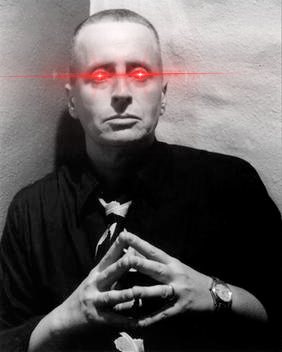It was a good read. Not at all what I expected. There really wasn’t any gender theory at all and no attempt justifying gender identity. It was just full throated support for all gender identities, which was nice.
I also found it really interesting how antiquated a lot of the language is after only two decades, but the message itself is at least as progressive as the conversations people are having now. There’s such an emphasis on transness outside of binary trans people.
I feel like this understanding of gender would really cut out a lot of the bullshit gatekeeping truscum arguments out. A lot of truscum look at enby or GNC people and say, “you’re just a man in a dress” to which I think Feinberg would reply, “Yes, and?” Men in dresses also have an outlawed gender expression which deserves defending. Considering how armed fascists keep showing up to drag events, I think this view has been vindicated.
I also find it interesting how s/he changes hir pronouns depending on the social context. To me, this level of fluidity acknowledges gender as a social manifestation as opposed to anything essential.
Anyway, I’d like to read more. I was turned to Marxism through history, so I’d like to read up on pre-modern queer history. When I’m arguing with people about gender, I always bring up the fact that gender expression has varied throughout history and there are lots of examples of gender outside of the binary; however, I don’t actually have specific examples that I am really familiar with.
Could anyone recommend a book that goes over non-cis gender identities throughout history and the roles they played? I’d really prefer a central source that covers a lot of cases as opposed to a deep discussion of a single one.
Thanks, comrades


Yeah haha I saw that I was trying to figure out what to say. We posted within like 30 sec of each other.
I guess even labelling it gender fluid or gender diverse doesn’t feel to do it justice, since I guess I reject the idea that the way I feel is “feminine” as much as its just not “masculine”. Is that just my ingrained sense of not wanting to identify as feminine? Or is agender just so hard to describe with the way we’ve been taught?
I think I’m gonna have to read it or this is gonna bother me
Hah, yeah. I think we share a lot of the same experience and views on this. I’ve worn women’s clothing for years now, but I only refer to them as women’s clothing because people know what I’m talking about when I say women’s clothing. When I refer to them, they’re just “my clothes.” I don’t think they have a gender. I revoke the idea that skirts or dresses are inherently feminine. I wouldn’t ever call myself a crossdresser.
HOWEVER, there are times when masculine and feminine categories have meaning for how I personally express myself. I guess that’s where the fluidity comes in.
Maybe. When I was really questioning, it kicked up a lot internalized misogyny, homophobia, transphobia, etc.
Or maybe you really are just agender. Don’t know, only you can reflect on that one.
Good luck with the reading! You can find it free on libgen. Feel free to DM me if you wanna chat about it.
Yeah sorry I didn’t mean to come at you like you have all the answers for how I feel, I appreciate the feedback. And thanks for making this post at such the perfect time for me to find it.
No need to apologize
Happy to help you on your journey